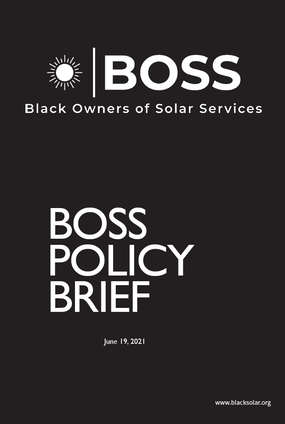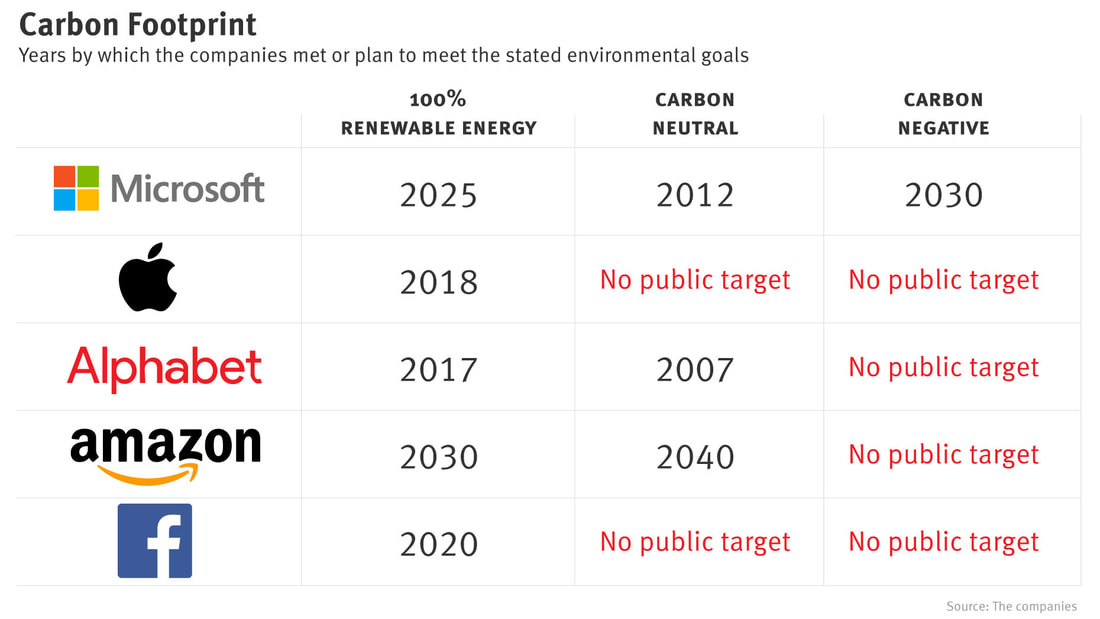The Clean Tech Equity + Opportunity Series (Virginia Forum Report) summarizes the historic convening of Historically Black College and University (HBCU) leaders and students, underserved minority entrepreneurs and related stakeholders in Virginia (USA). The report provides a national template to expose and educate students and key stakeholders about career and entrepreneurial opportunities in the clean technology sector, with a focus on solar energy. The Forum successfully leveraged the influence of universities, HBCUs and the power of corporations to ensure equity in this growing sector of the economy.
The national template was designed to be presented in three sessions:
0 Comments
I want to share a new federal policy brief launched by the group Black Owners of Solar Services (BOSS). I serve on the founding board of directors for BOSS and am so pleased by the work and vision of this young organization. BOSS is the largest community of African American professionals working in the solar photovoltaic (PV) space. It is comprised of entrepreneurs, financiers, veterans, attorneys, engineers, contractors, developers and other peer partners. BOSS possess deep knowledge, experience and strategic access to the multi-trillion dollar, emerging solar and clean energy technology marketplace that is fast reshaping sustainability, infrastructure resilience and livelihoods in our country and across the globe. It has established roots and relationships in all communities, and particularly those disproportionately impacted by climate change —in the United States and abroad. BOSS’ collective efforts are making communities more resilient, sustainable and economically powerful.
CARBON CREED
Copyright © 2020 Walter L. McLeod. All Rights Reserved. A Preamble
People often ask me "why create a Carbon Creed TM ?" Below is my simple explanation: We chose carbon to emphasize the importance of data in the struggle against climate change. The scientific consensus is that anthropogenic (man-made) climate change is an existential threat to life on earth. Carbon emissions must be measured, reduced and eliminated to avoid catastrophic consequences, which starts with data and benchmarking. We chose creed because humans need a common set of beliefs and values to decarbonize the economy. The word “creed” comes from credo, the Latin word that means “we believe.”
This creed is a statement of what is possible, what humans are capable of achieving when they unite around a common goal - a carbon creed. (source: the companies)
It’s getting hard to read the news without coming across a company promising to “reach net zero” or go “carbon neutral” or even become “carbon negative.” Mining company Rio Tinto and airline Delta are among the latest companies announcing plans to go carbon neutral, while Amazon, Apple, Tesla and other tech giants are all committed to dramatically reducing their carbon footprints. So what do all the different pledges mean and how can you compare them? Net zero, carbon neutral or carbon negative? Here is a list of definitions to help you navigate the wave of corporate green pledges: Net Zero: Net zero means that any carbon dioxide released into the atmosphere from the company’s activities is balanced by an equivalent amount being removed. Carbon Neutral: Carbon neutral is slightly different, allowing companies to measure the amount of carbon they release and offset that with a reduction in emissions or a removal of carbon. This can include buying carbon credits to make up the difference, making it appealing to companies that produce a lot of emissions. Carbon Negative: The next step – becoming carbon negative – requires a company to remove more carbon dioxide from the atmosphere than it emits. New pledges, new responsibilities The United Nations says climate change is the defining issue of our time and without drastic action, adapting to the changes it will bring will be difficult and costly. Companies are in the spotlight since studies show they’re responsible for the lion’s share of greenhouse gas emissions, creating a blanket of gas that traps heat and raises Earth’s temperature. Amazon’s corporate carbon footprint alone – measured as the total greenhouse gas emissions attributed to its direct and indirect operational activities – rivals that of some small nations. In the past, some companies have been accused of “greenwashing” – or overstating their eco credentials to garner favorable publicity. Companies have also been accused of setting headline-grabbing goals that look too far in the future and aren’t measurable. But for many companies, the narratives have changed, acknowledging the need to find long-term solutions that create real impact. Stay woke on carbon and climate. Go deep at carbon.substack.com #climate #carbon #ESG |
|
||||||||||||




 RSS Feed
RSS Feed
